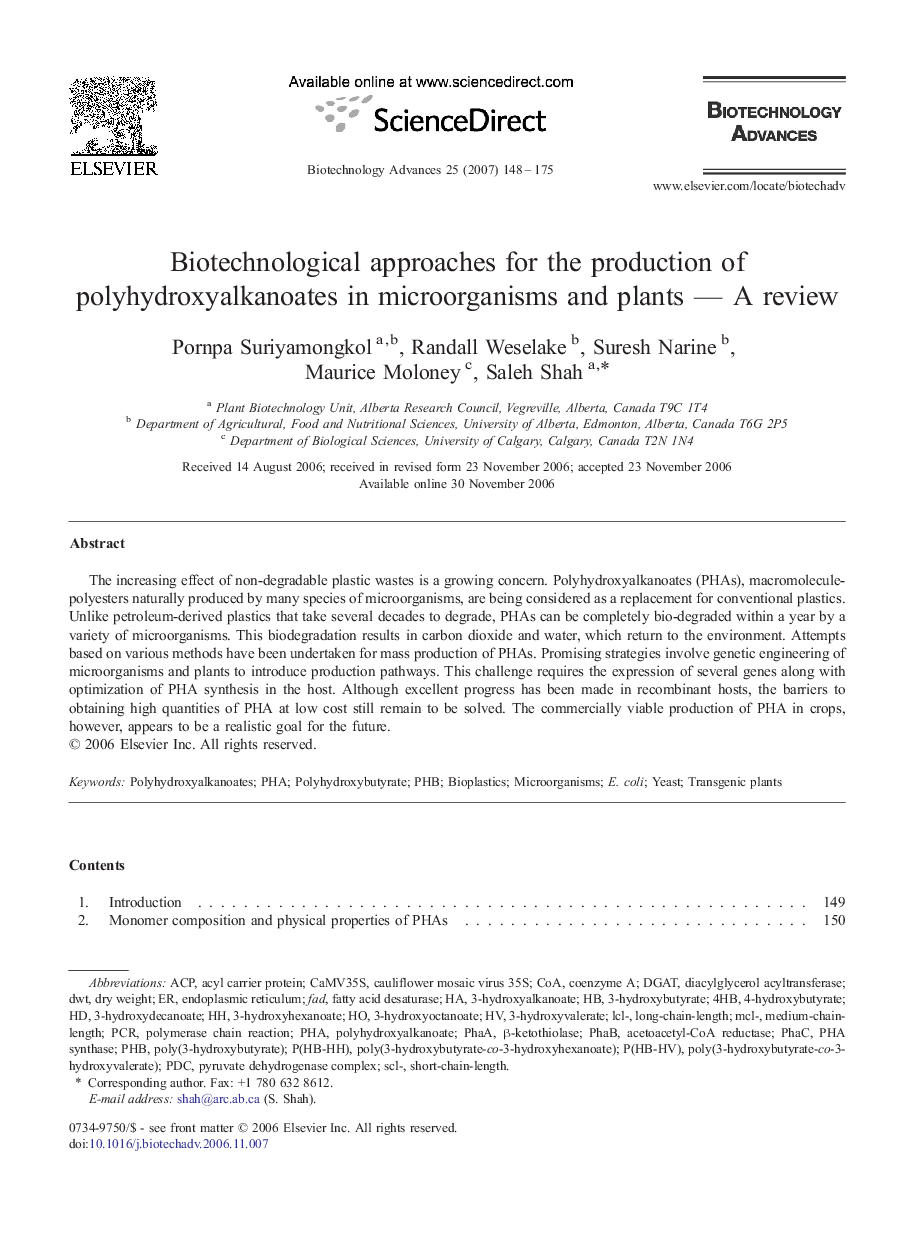| Article ID | Journal | Published Year | Pages | File Type |
|---|---|---|---|---|
| 14817 | Biotechnology Advances | 2007 | 28 Pages |
The increasing effect of non-degradable plastic wastes is a growing concern. Polyhydroxyalkanoates (PHAs), macromolecule-polyesters naturally produced by many species of microorganisms, are being considered as a replacement for conventional plastics. Unlike petroleum-derived plastics that take several decades to degrade, PHAs can be completely bio-degraded within a year by a variety of microorganisms. This biodegradation results in carbon dioxide and water, which return to the environment. Attempts based on various methods have been undertaken for mass production of PHAs. Promising strategies involve genetic engineering of microorganisms and plants to introduce production pathways. This challenge requires the expression of several genes along with optimization of PHA synthesis in the host. Although excellent progress has been made in recombinant hosts, the barriers to obtaining high quantities of PHA at low cost still remain to be solved. The commercially viable production of PHA in crops, however, appears to be a realistic goal for the future.
